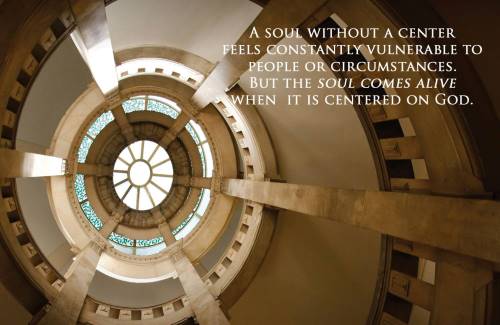How Do I Know God’s Will?
Want to know God’s will for your life? Let me ask you to stop, look, and listen. God makes His desires known to those who stop at His Word, look in with a sensitive spirit, and listen to others. When we go to His Word, we stop long enough to hear from above. When we look, we examine our surrounding circumstances in light of what He is saying to our inner spirit (perhaps you prefer to call this your conscience). And when we listen to others, we seek the counsel of wise, qualified people.
1. Stop at the Scriptures
The Bible tells us that the entrance of God’s Word gives light (Psalm 119:130). That it is a lamp for our feet and a light that shines brightly on our path (Psalm 119:105). God has placed His Word in our hands and allowed it to be translated into our tongue (both were His determined will) so we could have a much more objective set of guidelines to follow than our dreams, hunches, and feelings. Sixty-six books filled with precepts and principles. And the better we know His Word, the more clearly we will know His will.
Precepts. Some of the statements that appear in the Bible are specific, black-and-white truths that take all the guesswork about God’s will out of the way. Here are a few:
For this is the will of God, your sanctification; that is, that you abstain from sexual immorality. (1 Thessalonians 4:3)
See that no one repays another with evil for evil, but always seek after that which is good for one another and for all people. Rejoice always; pray without ceasing; in everything give thanks; for this is God’s will for you in Christ Jesus. (1 Thessalonians 5:15–18)
These specific things are stated to be the will of God. There are even times that suffering is directly the will of God for us.
First Corinthians 7 says a lot about remaining single as well as being committed to one’s marriage. Clearly, this chapter (along with 2 Corinthians 6:14) states that a Christian is definitely not to marry a non-Christian. These are finely tuned precepts that reveal God’s will.
Principles. But the Bible also has principles, general guidelines to assist us through the gray areas. Not so much “do this” and “don’t do that,” but an appeal to use wisdom and discretion when such are needed.
We have both precepts and principles in our traffic laws. The sign that reads “Speed Limit 35” is a precept. The one that reads “Drive Carefully” is a principle. And that principle will mean one thing on a deserted street at two o’clock in the morning, but something else entirely at three-thirty in the afternoon when children are walking home from school.
Just remember this: A primary purpose of the Word of God is to help us know the will of God. Become a careful, diligent student of Scripture. Those who are will be better equipped to understand His desires and walk in them.
2. Look Around and Within
Philippians 2:12–13 presents a good cause for our cooperating with the Lord’s leading:
So then, my beloved, just as you have always obeyed, not as in my presence only, but now much more in my absence, work out your salvation with fear and trembling; for it is God who is at work in you, both to will and to work for His good pleasure.
These verses highlight three specifics: There’s a willingness to obey. There’s the need to “work out” or give ourselves to doing our part with a sensitive spirit (fear and trembling). And then there’s the promise that God will “work in you” to accomplish His plan. As we remain alert to His working, paying close attention to doors He opens and closes, He directs us into His will.
Closed doors are just as much God’s leading as open ones. The believer who wants to do God’s will must remain sensitive and cooperative, not forcing his or her way into areas that God closes off. The Lord uses circumstances and expects us to “read” them with a sensitive, alert conscience.
We must stop and check His Word. We must look around and within. And there is one more helpful piece of advice to remember. We must . . .
3. Listen to the Counsel of Qualified People
Solomon the wise once wrote:
A plan in the heart of a man is like deep water,
But a man of understanding draws it out. (Proverbs 20:5)Iron sharpens iron,
So one man sharpens another. . . .As in water face reflects face,
So the heart of man reflects man. (Proverbs 27:17, 19)
Like a quarterback, facing fourth-and-one on the thirty-yard line, who calls a time-out to consult with the coach, so must we. God uses others to help us know His desires.
God makes His will known: (1) through His Word . . . as we stop and study it, (2) through circumstances . . . as we look within and sense what He is saying, and (3) through the counsel of others . . . as we listen carefully.
The better we know God’s Word, the more clearly we will know His will for us. —Chuck Swindoll
Excerpted from Avoiding Stress Fractures, Copyright © 1990, 1995 by Charles R. Swindoll, Inc. All rights reserved worldwide.
____________
Source: http://www.insight.org/resources/devotionals/how-do-i-know-gods-will.html?utm_source=feedburner&utm_medium=feed&utm_campaign=Feed%3A%20DailyDevo%20%28IFL%20-%20Chuck%20Swindoll%27s%20Daily%20Devotional%29&utm_content=FaceBook







